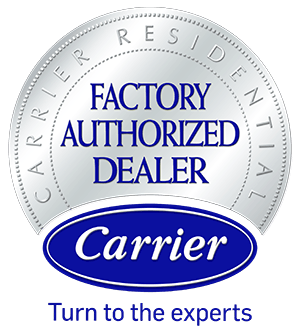A heat pump is one of the best options for home heating and cooling these days. If you’re in the market for an AC replacement, you might want to consider a heat pump. Heat pumps are steadily gaining in popularity due to the excellent benefits they provide, which include better energy efficiency, easier installation, and simpler maintenance.
To guide you in choosing a heat pump, here are some of the most common questions asked about these efficient appliances:
What’s a Heat Pump?
A heat pump is a two-component system that can provide heating and cooling by using refrigeration technology and electricity. The outdoor component is the condenser unit, while the indoor component is responsible for moving the heated or conditioned air produced by the condenser unit into the room. Heat pumps are often referred to as ductless mini-split systems. They’re known for high energy efficiency and for not using any ductwork.
What Benefits Does a Heat Pump Provide?
A heat pump doesn’t use electricity to generate heat. Instead, heat pumps use electricity to power the unit. This means they’re more energy efficient. Electricity powers the evaporator and condenser fans, as well as the compressor and the pump.
Is a Heat Pump High-Maintenance?
A heat pump is a no more high maintenance than most other modern HVAC systems. You might spend less on AC maintenance if you have a heat pump, as fewer components will need to be repaired or replaced. There’s no ductwork to worry about, either. With a reasonable amount of maintenance, your heat pump will last a long time.
Can a Heat Pump Lower My Electric Bill?
Technically speaking, a heat pump added to your home will cause a slight rise in your electric bill. However, it will also lower your dependence on other fuels, particularly for heating, so you’re likely to save more money if you use a heat pump. With a ductless mini-split system installed in the rooms that you use most frequently, you’ll save more money because you’re not wasting energy on areas that you don’t use much, unlike with a system that delivers heating or cooling to your entire home all the time.
Can I Install a Heat Pump Myself?
It’s not recommended to install a heat pump yourself. It’s safer to hire a professional to install it to prevent costly mistakes that can reduce its efficiency and shorten its lifespan. It’s also advisable to hire a professional if your heat pump needs AC maintenance. A professional can spot potential problems and recommend solutions to prevent more expensive issues from coming up down the road.
One of the most common DIY mistakes when installing a heat pump has to do with the placement of the units. The outdoor unit shouldn’t be placed directly on the ground, where it can get flooded or covered with debris. It’s also not advisable to install it where it receives the direct heat of the sun. However, it shouldn’t be in an enclosed area, either. The indoor unit should only be installed on an exterior wall, never on an interior wall.
Will a Heat Pump Work with a Solar Electric System?
Yes. You’ll reap the benefits of using a heat pump particularly if you install solar panels to power it. You can lower the cost of the electricity used to power your heat pump by up to 40% every year if you have solar panels installed. Your home may still use a little electricity from the grid when you run your heat pump and other appliances overnight or when there’s little sun, such as on stormy days. You might also use more power during the summer because of the heat. However, having a solar panel system is still thriftier than depending only on the grid to power your appliances.
Will a Heat Pump Work in a Very Cold Climate?
While a heat pump will continue working in very cold temperatures, it’s advisable to ask your AC contractor about the type of heat pump they’d recommend. This is why it’s best to buy your heat pump locally because local vendors and installers are familiar with the climate and can recommend the unit that will work best even when it gets very cold. This way, you won’t have to deal with frequent, expensive repairs or a premature heat pump replacement.
A heat pump can lose efficiency or stop working if it gets too cold, but this usually only happens when it’s freezing outside. We’re talking 2° or lower on the Fahrenheit scale.
If your home has very little insulation, or if it loses heat very quickly, your heat pump will also have to work much harder to maintain comfortable temperatures. If your home is new or has plenty of insulation and virtually no air leaks, this shouldn’t be a problem.
Is It Possible to Use a Heat Pump as My Sole Heat Source?
In most regions where temperatures don’t get too low throughout the year, it’s possible to depend on a heat pump alone. However, again, a heat pump will be more efficient if the home is properly insulated; otherwise, the heat pump will have to work harder and will probably need frequent HVAC repairs.
If you live in an area where it gets bitterly cold during the winter season, it’s advisable to have a backup source of heat. You can also use the heat pump as a backup to your primary heat source, especially if the winters last a long time where you live.
Can a Heat Pump Be Used in a Commercial Space?
Yes. Business owners are increasingly leaning towards the use of heat pumps to lower overhead expenses in their commercial spaces. This is especially true if you have separate offices on your building floor, where it’s possible to install separate ductless mini-split systems so unoccupied offices aren’t wasting energy.
For more information regarding heat pumps and other heating and cooling equipment, get in touch with Cool Zone Air Conditioning & Heating. We offer AC repair and other heating and cooling services. Call us today at (623) 322-0933 or contact us here.


